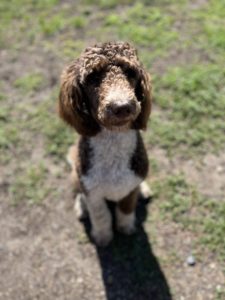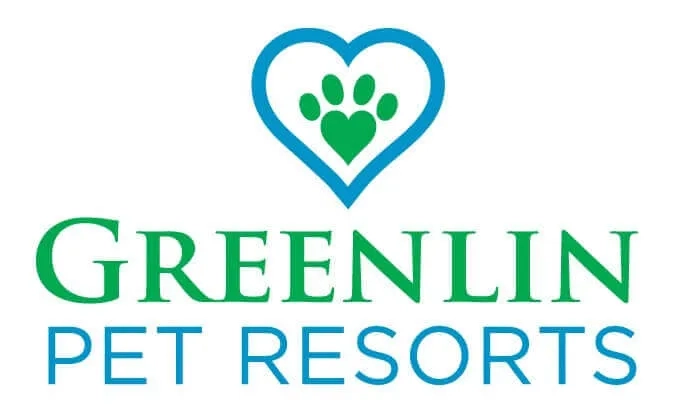How to Care For a Dog With Sensitive Skin
Your dog can tell you a lot about the quality of their health just based on their skin and coat. Your dog’s skin is the largest organ throughout their entire body and is a vital part of their immune system, protecting them from the germs of the outside world. Because your dog’s skin is so important, it’s crucial to observe and tackle problems with the skin early and head-on!

You should expect your dog’s coat to feel soft, full, and glossy; such attributes are usually an indication of a thriving companion! Think about it in terms of your scalp and hair. You wouldn’t want a dry, flaky scalp or brittle hair that falls out in clumps, and neither does your dog. This article will discuss the common signs of sensitive skin and how to treat it!
Causes Of Sensitive Skin
There are many reasons why your dog may be experiencing skin sensitivity, from environmental to genetic and nutrient-related. Pinpointing the unique reason for your dog will help you build the best action plan for fixing any concerns.
Sometimes screening for a cause of skin sensitivity can be done at home. Other times you’ll need the help of a professional, like a veterinarian, to help you find the answer.
The following are some of the most common factors contributing to skin issues you may be seeing.
Environmental Factors
Your dog could be sensitive to the environmental stimulus around them. This includes grass, pollen, and even trees. Most commonly, fleas are the perpetrator of skin sensitivity from environmental factors. If you’ve ruled out fleas and your dog isn’t allergic to foliage or pollen in your area, you could consider a dry environment being the cause. If your dog goes from hot, humid air outside to crisp air-conditioned air inside, the sudden change and constant fluctuation in temperature could create problems with the skin and coat.
Sun exposure and high heat are also significant culprits, especially when it comes to hot spots.
Exposure to Irritants
Some dogs are predisposed to skin concerns around everyday products like cleaning solutions, laundry detergent, and even hand soap. These allergies typically show themselves after a change in product, so be sure to monitor how your dog reacts to every new solution they might come into contact with. Pollen sensitivities can also be considered genetic allergies.
Genetic Factors
Some dogs have special skin care needs as a result of their breeding line or their unique gene expression. Breeds with short coats are particularly susceptible to allergies, skin irritation, and ongoing inflammation.
Speak to your breeder or perform an evaluation with your vet to fully understand what risks your dog could face.
Food Allergies
Some dogs can be allergic to an ingredient in the dog food you’re feeding them. The most common food allergies for dogs include things like beef, chicken, wheat, corn, and soy.
Regarding food allergies, it is best to have this checked out by a vet. Not only can a professional conclude whether or not the dog actually faces a food allergy, but if it is found that your dog is sensitive to certain ingredients, they can help you supplement with better proteins and additives to offer your dog.
Signs Your Dog May Feel Uncomfortable In Their Skin
So, how are you supposed to know that your dog is battling skin problems in the first place? Your dog can communicate that they’re uncomfortable in many ways. You just have to know what to look for.
Some common signs of skin irritation are:
- Excessive licking
- Patches of lost fur and/or reddened skin
- Hives or general swelling
- Excessive face rubbing
- Irritated eye/ear area
Aside from physical symptoms, your dog could also be exhibiting behaviors that signal that they’re feeling uncomfortable in their skin — literally.
A study published in 2019 by Nottingham University in the U.K found, through their own research, that problem behavior in dogs can often be linked to skin irritation.
Our study clearly showed a relationship between the occurrences of problematic behavior in dogs and chronic itching,” said researcher Dr. Naomi Harvey. Some of the behaviors noted in the study include excessive Bathing, stealing/begging for food, hyperactivity, and eating feces.
Nutrition Links To Skin Sensitivity
What you feed your dog will be directly reflected by the health of their coat. Often, providing the right diet rich in needed nutrients and free from allergens or irritants is the key to resolving ongoing skin issues in dogs.
Some of the most common health concerns aside from food allergies regarding skin sensitivity are dehydration and vitamin deficiency. The most frequently seen vitamin deficiencies are zinc, vitamin A, and polyunsaturated acids.
Most veterinarian-recommended brands offer a skin-sensitive line that may help your furbaby get back on track. You can also consider adding a natural oil like salmon or coconut oils to help further moisturize their coat.
Skin Allergies
If your dog has skin allergies, strict maintenance is required to keep them at their healthiest.
If your dog is sensitive to harsh chemicals and soaps, you’ll need to switch the products you use around the house. If this is the case, your dog may require an alternative, gentle soap for bath time.
You can also dramatically improve the quality of your dog’s skin and coat with regular brushing, which will remove dandruff and dry skin, regular bathing (2-4 times monthly) to eliminate exposure to allergens resting on the skin, and a grooming schedule.
Try Dog Bathing Services At Greenlin Pet Resorts
At Greenlin Pet Resorts, we offer premier pet bathing services from our wonderful team of experienced professionals. Our spa staff are efficient, patient, and qualified to keep your furbaby looking happy and healthy.
We offer bathing, deluxe spa treatments, brush-outs, de-shedding, and nail trims. We also conduct a simple health screening with every service. Your dog’s skin and coat are a general estimate of their overall health, so each staff member is trained to look for any abnormalities on the skin, which can indicate a possible concern to have checked out by a veterinarian.
If you have questions about our services or want to book a bathing appointment, contact one of our 5 Harrisburg locations today!
